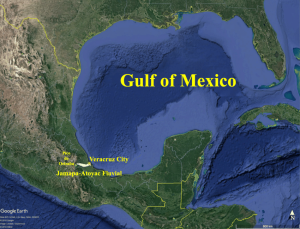Focusing on dismissal proceedings and the aftercare of clients post-casework, Antonio Eduardo Gómez de Enterría, Partner and Head of the Employment practice at Herbert Smith Freehills' Madrid office, takes Lawyer Monthly on a journey of understanding the trivial relationship between employer and employee at the centre of labour disputes.
When representing corporate entities in labour disputes, what challenges do you face?
Company representation in labour disputes is always presided by the need to find a balance between the company's economic interests and corporate social responsibility. In this regard the Spanish courts often broadly apply a "pro-operator" construction approach beyond reasonable doubt. This construction principle makes the job of corporate lawyers particularly difficult in labour proceedings. However, independently of this theory, it is particularly rewarding and challenging to search for creative solutions to labour issues that make it possible to reconcile companies' financial clout with a treatment of their employees that is not only legally proper, but also socially respectable.
What are common reasons for ex-employees filing for unfair dismissal; what can companies do to avoid lawsuits in this case?
Dismissal claims have changed over the years. The reasons underlying claims have changed according to different economic cycles. In times of boom, when unemployment rates were low or even close to "full employment", dismissal claims tend to focus on obtaining the maximum severance possible and, consequently, the reasons triggering the dismissal are often brought into question. On the other hand, at the bust end of financial cycles, when finding a new job has become increasingly difficult, the wish to continue working for companies has triggered a significant increase in the number of claims seeking dismissals to be declared null and void due to violations of fundamental rights or, in case of collective dismissals, due to the existence of procedural errors that could lead to the same conclusion: annulled dismissals.
Taking these circumstances into account, to avoid these claims, companies must be careful when devising and structuring dismissal proceedings, in their choice and justification of the grounds for dismissal and in the delivery of letters of dismissal to the affected employees, attempting at all times to treat them properly so that the dismissal, albeit always traumatic, is not also perceived as an aggression.
What is the most challenging contentious, transactional and advisory matter you face with employment law? How do you work through such challenges?
Disputes are, obviously, always particularly challenging – especially those that bring into question collective dismissal proceedings. This is due to different factors: The first, the financial impact of an unfavourable judicial decision, which normally doubles, or even trebles, the costs of the process. Secondly, the difficulty in having the courts understand business economic concepts and management realities that they are not normally familiar with; it is especially challenging (i) to encourage the members of the court to relinquish their original viewpoint, which is normally that of protecting the interest, and (ii) to have them understand concepts such as the corporate profitability, the necessary return on shareholders' investments and the company's necessary competitive position.
Two elements are vital to undertake legal proceedings of this kind: preparation and imagination. Both elements are key (i) to performing the analysis necessary to explain the grounds for the company's decision to dismiss and (ii) to devise a social plan with placement measures that will ensure that the affected employees have a number of different options once they leave. These proceedings must also be undertaken in the knowledge that sound arguments can be made that the proceedings are the only option available for the company to ensure its long-term survival, that it has protected the maximum number of jobs possible and that it has also taken the measures necessary to provide alternative options that are economically respectable and socially responsible.
Eduardo Gómez de Enterría
Partner
Herbert Smith Freehills LLP
Employment, Pensions & Incentives
eduardo.g_enterria@hsf.com
+34 91 423 40 32
www.herbertsmithfreehills.com
I have 20 years of experience in labour law, pensions and incentives and have developed my practice across all areas of labour law and, in particular, collective bargaining, corporate restructuring processes and collective dismissals. I have specific training in collective dismissals from Harvard University and Instituto de Empresa.
Herbert Smith Freehills is one of the world’s leading professional services businesses, bringing together the best people across our 27 offices, to meet all your legal services needs globally.




















